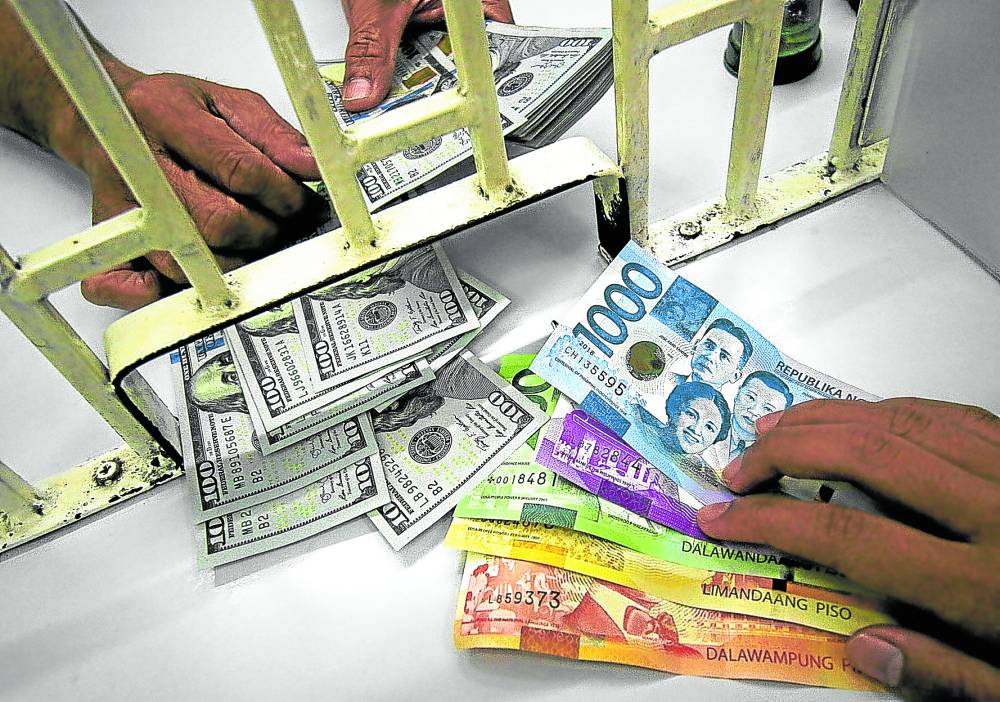Money sent home by Filipinos abroad posted its best expansion in five months in May, although figures showed growth of remittances might be plateauing despite the peso’s weakness.
Cash remittances coursed through banks amounted to $2.58 billion in May, up by 3.6 percent compared with a year ago, the Bangko Sentral ng Pilipinas (BSP) reported on Monday. Data showed this was the highest year-on-year growth of remittances since December 2023.
READ: Feb remittances hit $2.65B, up 3%
But despite that increase, remittances might not be receiving a significant boost that typically comes from a weak peso, which is now trading at the 58-per dollar level.
Year-to-date, remittances had grown by an annualized rate of 3 percent to $13.37 billion. Data showed cash transfers from Filipinos abroad have been growing at around 3 percent since late 2022, with the BSP projecting the average growth of such inflows to settle at that level again in 2024.
Jeremaiah Opiniano, professor at University of Santo Tomas and executive director at the Institute for Migration and Development Issues, said this trend may “signify a plateau” that had not changed so far despite the currency’s slump.
Stability
“For the past two months (April and May 2024), overseas Filipinos did not take advantage of the low currency exchange rates to motivate them in sending more money,” Opiniano said.
“One would wonder if the efforts of Filipinos abroad to earn more and send money home may have been stretched,” he added.
Money sent home by Filipinos overseas is a major source of purchasing power in the Philippines, where consumption typically accounts for over 70 percent of gross domestic product (GDP). That said, a plateauing remittance growth may translate to sub-par support to consumer spending.
READ: Remittances growth wanes as holiday spree fades out
But John Paolo Rivera, senior research fellow at state think tank Philippine Institute for Development Studies, is seeing “stability” in the current trend.
“Historically, as BSP data reflects, remittances have been consistently stable and increasing given the volume and distribution of Filipinos all over the world driven by various motives in sending remittances,” Rivera said.
Dissecting the BSP’s report, remittances from land-based Filipino workers went up by 3.8 percent to $2.06 billion in May while those from sea-based workers inched up by 2.6 percent to $520 million.
In terms of countries of origin, the United States had the highest share to overall remittances in the first five months at 40.9 percent, followed by Singapore (7.2 percent) and Saudi Arabia (6.1 percent).


